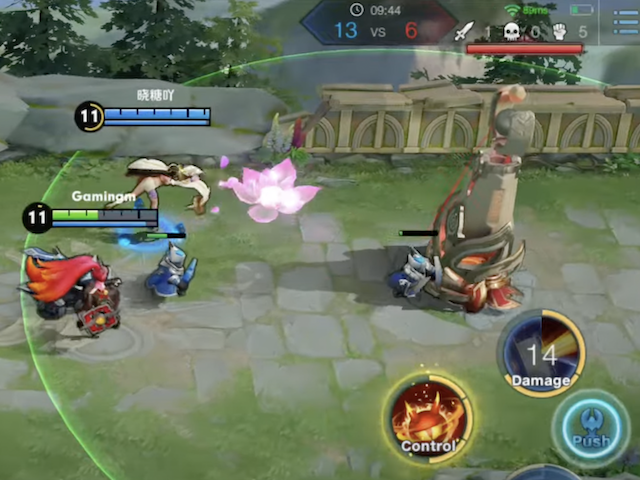A Chinese state newspaper called Economic Information Daily published an article on Tuesday that compared Internet gaming to opium addiction.
Nervous investors interpreted the piece as signaling an impending regulatory crackdown by the increasingly heavy-handed Chinese Communist Party, triggering a stock market panic that erased billions of dollars in value from Internet gaming titan Tencent and other companies.
The panic-inducing article at Economic Information Daily, run by the giant state-controlled Xinhua news agency, denounced addictive online games as “spiritual opium” – a heavily loaded phrase given China’s history with that particular drug – for young players and called for heavier regulation of the industry.
“No industry, no sport, can be allowed to develop in a way that will destroy a generation,” the article declared.
The article specifically mentioned Tencent’s “Honor of Kings” as an example of videogame opium, blaming it for declining academic performance and poor social attitudes among teenagers.
“Honor of Kings,” available for both Android and Apple smartphones, is Tencent’s most successful online game. It is touted as a “household name in China” by the company and has a hefty following in other markets. Its closest competition is another Tencent product, “Player Unknown’s Battlegrounds” or PUBG.
Tencent reported the game had 100 million daily players around the world in 2020, making it one of the most popular mobile online games. It boasts esports leagues and professional championship tournaments with billions of views and generates over $250 million per month in revenue.
The publication of a state media article that trashed “Honor of Kings” as a highly addictive electronic drug for teenagers, quite reasonably seen by investors as the Chinese Communist Party (CCP) telling itself to crack down hard on some of Tencent’s most lucrative products, sent shockwaves through a stock market already terrified of CCP regulators.
Tencent’s stock tumbled ten percent on Tuesday morning, wiping out nearly $60 billion of its market capitalization, while several smaller Internet gaming companies reported comparable declines. Tencent has long been a fixture atop the list of most valuable firms in Asia, but for a few hours on Tuesday, it slipped into second place behind Taiwan Semiconductor Manufacturing.
Market analysts told Reuters the “spiritual opium” article was precisely the sort of state media warning bell investors have been watching for after a month of regulatory crackdowns on various industries that drove the Chinese stock market to a three-year-low:
“Most will be inclined to believe there’s no smoke without fire,” said Dave Wang, a portfolio manager at Nuvest Capital in Singapore, which owns Tencent stock, of the vanished story.
“There’s expectation of a further tightening on the gaming sector,” he added. “There are plenty on the sidelines waiting for clarity on when this crackdown will finally come to a close before any more meaningful investments into China.”
[…] “(The share price moves) showed how investors are jumpy these days,” said Ether Yin, partner at Beijing-based consultancy Trivium. “They don’t believe anything is off limit and will react, sometimes over-react, to anything on state media that fit the tech crackdown narrative.”
Whatever the communists might be planning, it was evidently surprised by the nose-dive plunge of gaming stock values and Tencent’s staggering losses. The Economic Information Daily article was deleted entirely, then reappeared late Tuesday morning with the line about “spiritual opium” removed. The new version called on game developers to work with regulators and parents to reduce addictive behavior and placed some of the blame for gaming addiction on parents who did not supervise their children enough.
Tencent and the other gaming companies rallied after the new version of the article appeared and regulatory sources indicated the original wording did not represent the “official stance” of the Communist regime. According to these sources, the Communist Party actually favors online gaming as an effective means of spreading Chinese cultural influence abroad. (“Honor of Kings” is a multiplayer team battle game whose playable characters are mostly figures from Chinese history and legend).
Tencent announced on Tuesday that it will take steps to reduce the amount of time minors are spending on “Honor of Kings,” and will ban players under age 12 from spending money on the game. Like many mobile games, “Honor of Kings” is technically free to play at first, but users must spend real-world money on in-application purchases (IAP) to make progress and obtain flashy cosmetic items. A study of the game in 2017 estimated its players spend an average of $1.50 to $6 per month on such purchases.

COMMENTS
Please let us know if you're having issues with commenting.